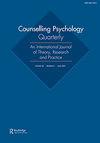Implementing routine outcome monitoring in a psychodynamic training clinic: it’s complicated
IF 1.5
Q3 PSYCHOLOGY, APPLIED
引用次数: 4
Abstract
ABSTRACT The use of routine outcome monitoring (ROM) has been shown to improve treatment outcomes, reduce symptom deterioration and treatment dropout, and is especially relevant for training clinics. However, the use of ROM in a psychodynamic training clinic has remained relatively unexplored. We aimed to instigate an open dialogue about the use and usefulness of ROM within the context of contemporary psychodynamic clinical practice. As a graduate trainee and professor in a psychodynamic training program, we reflect on the seemingly irreconcilable differences between psychoanalytic thinking and ROM, the anxiety around being evaluated as a trainee, whom ROM is for, the pragmatic challenges when trying new tools and technology (especially when not chosen yourself), and the limitations of standardized self-report measures, such as the OQ. Overall, these complexities suggest that although ROM is likely worthwhile for patients, therapists, supervisors, and researchers, it will only come to its fruition if we integrate it into the tri-legged stool of evidence-based practice . We will need to engage in a genuine discussion about the use of ROM and consider the possibility that ROM might even improve our psychodynamic practices. Integrating ROM into psychodynamic didactic courses and supervision in graduate training could be a good starting point.在心理动力训练诊所实施常规结果监测:这很复杂
常规结果监测(ROM)的使用已被证明可以改善治疗结果,减少症状恶化和治疗中途退出,并且与培训诊所特别相关。然而,ROM在心理动力训练诊所的应用仍然相对未被探索。我们的目的是在当代心理动力学临床实践的背景下,激发关于ROM的使用和有用性的公开对话。作为一名心理动力学培训项目的研究生实习生和教授,我们反思了精神分析思维和ROM之间看似不可调和的差异,作为实习生被评估时的焦虑,ROM是为谁服务的,在尝试新工具和技术时的务实挑战(尤其是当你自己没有选择的时候),以及标准化自我报告测量的局限性,比如OQ。总的来说,这些复杂性表明,尽管ROM对患者、治疗师、主管和研究人员来说可能是值得的,但只有当我们将其整合到循证实践的三脚凳中,它才能取得成果。我们需要对ROM的使用进行真正的讨论,并考虑ROM甚至可以改善我们的心理动力学练习的可能性。将ROM纳入心理动力学教学课程和研究生培训的监督可能是一个很好的起点。
本文章由计算机程序翻译,如有差异,请以英文原文为准。
求助全文
约1分钟内获得全文
求助全文
来源期刊

Counselling Psychology Quarterly
PSYCHOLOGY, APPLIED-
CiteScore
6.20
自引率
6.70%
发文量
30
期刊介绍:
Counselling Psychology Quarterly is an international interdisciplinary journal, reporting on practice, research and theory. The journal is particularly keen to encourage and publish papers which will be of immediate practical relevance to counselling, clinical, occupational, health and medical psychologists throughout the world. Original, independently refereed contributions will be included on practice, research and theory - and especially articles which integrate these three areas - from whatever methodological or theoretical standpoint. The journal will also include international peer review commentaries on major issues.
 求助内容:
求助内容: 应助结果提醒方式:
应助结果提醒方式:


